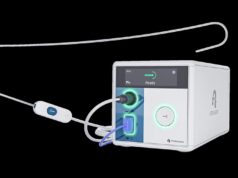 Element Science has announced the successful completion and presentation of the results of the Jewel investigational device exemption (IDE) study, assessing the Jewel patch-wearable cardioverter defibrillator (P-WCD).
Element Science has announced the successful completion and presentation of the results of the Jewel investigational device exemption (IDE) study, assessing the Jewel patch-wearable cardioverter defibrillator (P-WCD).
The study, which enrolled 305 patients, marks a significant milestone in the field of sudden cardiac arrest (SCA) protection, the company said in a press release.
Wearable cardioverter defibrillators (WCDs) have shown promise in preventing SCA, a leading cause of death in the USA, though challenges related to patient comfort and compliance have limited their widespread adoption resulting in potentially avoidable deaths, Element Science adds in the release.
The Jewel P-WCD features a low-profile, lightweight design and is water-resistant, allowing patients to comfortably wear it during their daily activities, including showering and exercise. The device is powered by a proprietary machine learning algorithm, and the company states that the system accurately detects abnormal heart rhythms resulting in a low false alarm rate and timely defibrillation when needed.
Uday N Kumar, founder, president & CEO of Element Science, stated: “From the outset, our goal has been to improve the outcomes of patients who have a temporary risk of experiencing sudden cardiac arrest by creating a solution based of the realities of patients’ lives.
“The findings from the study demonstrate that a diverse group of patients, from a wide variety of geographies and climates, can achieve high wear-time compliance with the Jewel P-WCD, translating into extended protection from SCA and the best opportunity for a favourable outcome in their daily lives.”
John Hummel (Ohio State University Wexner Medical Center, Columbus, USA) presented findings from the JEWEL IDE study as a featured science presentation at the 2023 American Heart Association (AHA) Scientific Sessions (11–13 November, Philadelphia, USA) .
The study reported that no deaths or serious adverse events were related to the device, as well as high compliance, with patients wearing the Jewel P-WCD for a median wear-time of over 23 hours per day.
The investigators reported a high number of successful ventricular tachycardia (VT)/ventricular fibrillation (VF) conversions, with the device having converted eight separate VT or VF events in six patients, resulting in all being successfully saved.
There was also a low false alarm rate and a very low inappropriate shock rate of just 0.36 shocks per 100 patient-months, providing patients with peace of mind and reducing the inconvenience associated with false alarms, the company added in its press release.
Hummel, one of the study national principal investigators and the presenter of the study results at AHA ’23 stated, “The results of the Jewel IDE Study are extremely encouraging. No currently available technology appears to provide the level of protection and compliance we saw in this study, indicating the true value of patient-centric innovation for those at risk of sudden cardiac arrest.”









